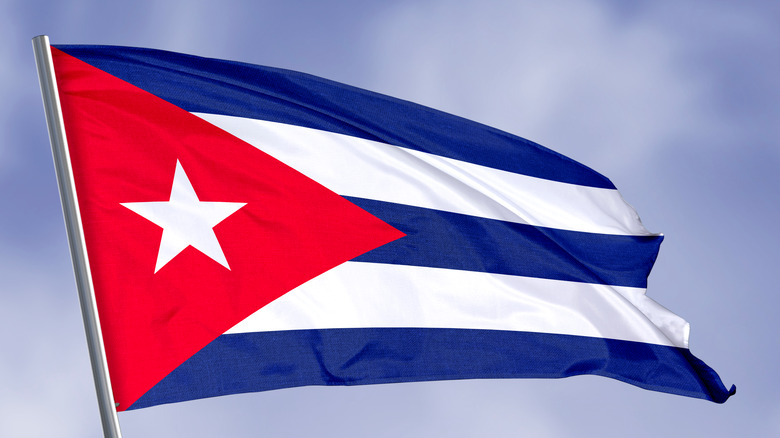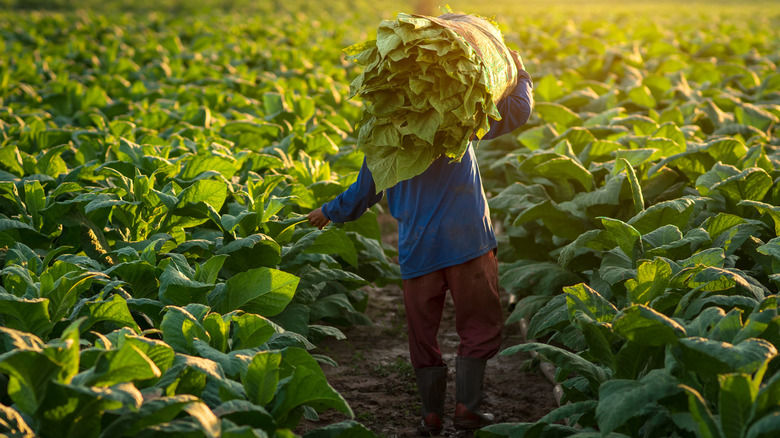This Is How Cuba Got Its Name
Only about 100 miles off the coast of Florida, the island nation of Cuba has a rich and fascinating history beyond its relationship with the United States and the Western World, via Wonderopolis. Christopher Columbus claimed the archipelago for Spain in 1492, and some believe that the country would one day be called Cuba after the area of Portugal bearing the same name, according to Portugal Travel. This makes sense because Columbus himself was Portuguese, as Britannica reports.
While no one knows for certain, the most commonly accepted explanation for how Cuba got its name stretches much back before Columbus, and even before Europeans had made contact with the largest Caribbean island. The word, according to some experts, is rooted in the Taíno language. Although now extinct, Taíno was once the most commonly spoken language among the people of the Caribbean prior to European contact, via Britannica. It's in this ancient language where the origin of Cuba's name can be found, some experts say.
'A great place'
When Christopher Columbus stepped off his boat onto the shores of Cuba, he likely heard the people there speaking Taíno. Not soon after, the language all but vanished, but several words that we continue to use today were borrowed from the ancient tongue, including "canoe" and even "tobacco," as Britannica reports. Many experts believe the word Cuba itself may have its roots in Taíno, specifically in two Taíno words that look and sound very, very similar, according to Britannica.
According to the Dictionary of the Taíno language, available from the Alfred Carrada website, two words from the Taíno language bear a striking resemblance to Cuba, including "cubao" roughly translating to "where fertile land is abundant," or "coabana," meaning "a great place." According to Britannica, Cuban soil is highly fertile, as can be seen pictured above. For this reason, it's easy to imagine ancient speakers of the Taíno language finding cubao or coabana a very fitting name for the islands they called home.

